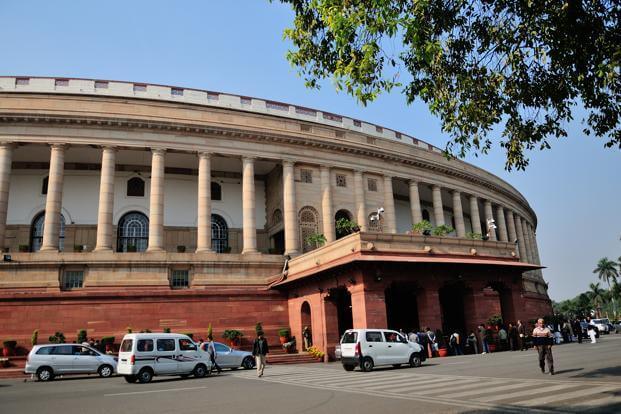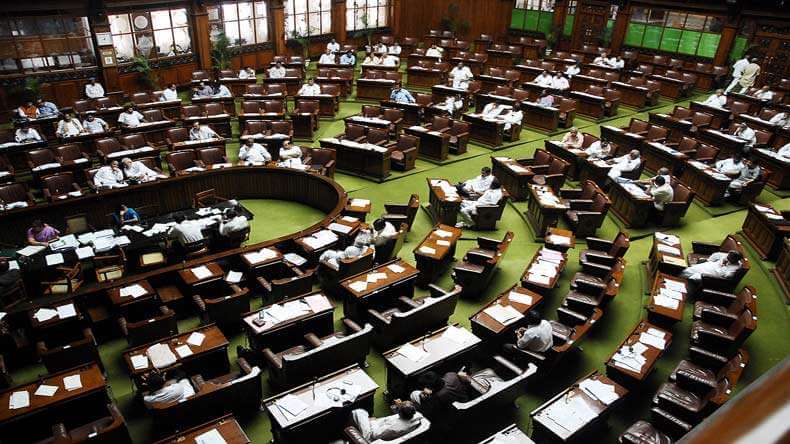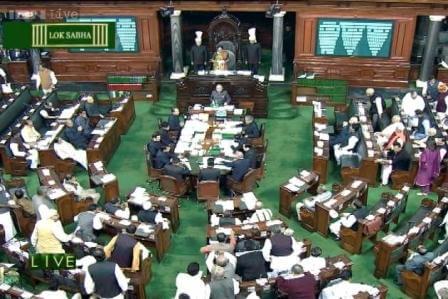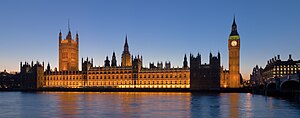Ecological Approach to Public administration- Public Choice Theory
- Public Policy
- Civil Society
- Governance in India
- Development Concepts and Theories
- Systems and Behavioural Approach Views of Chester Barnard & Herbert Simon
- Citizen and Administration
- Introduction to Public Policy Part 1
- Introduction to Public Policy Part 2
- Public Economics
- Leadership
- Communication
- Administrative Responsiveness
- Civil Society
- Public Policy Making Major Determinants Part-1
- Role Of Planning Commission
- Socio Psychological Approach
- Understanding Policy Implementation
- Indian Budget System - Part 1
- Indian Budgeting System-Part 2
- Training Of Higher Civil Servants
- Psychological Approach Views Of Abraham Maslo and Federick
- Globalisation
- Mitigating Disasters
- Democracy in Search of Equality
- Role Of Voluntary Organisation
- New Public administration
- New public management
A blog dedicated to Public Administration - comprehensive and wholesome knowledge. #UPSC #IAS #POLICY #IPS #IFS #IRS YOUTUBE CHANNEL: https://www.youtube.com/@jkstudycircle
Public administration IGNOU videos
When Does a Bill Lapse in Indian Parliament?
We sometimes read news about lapsed bills with respect to Indian Parliament as well as State Legislatures. But when does a bill lapse? Normally, bills lapse in connection with the dissolution of Lok Sabha or State Legislative Assembly. But there are multiple sub-cases regarding this. In this post, we discuss the different cases of lapsing of bills in detail.
When Does a Bill Lapse in Indian Parliament?
Please remember that only the Lok Sabha and the Legislative Assemblies are subject to dissolution (and there is no dissolution for Rajya Sabha and State Legislative Council).
When the Lok Sabha is dissolved, all business including bills, motions, resolutions, notices, petitions and so on pending before it or its committees lapse. They must be reintroduced in the newly-constituted Lok Sabha to be pursued further. Articles 107 and 108 of the Indian Constitution deals with these provisions. The position with respect to lapsing of bills is as follows:
Cases when a bill lapse:
- A bill originated in the Lok Sabha but pending in the Lok Sabha – lapses.
- A bill originated and passed by the Rajya Sabha but pending in Lok Sabha – lapses.
- A bill originated and passed by the Lok Sabha but pending in the Rajya Sabha – lapses.
- A bill originated in the Rajya Sabha and returned to that House by the Lok Sabha with amendments and still pending in the Rajaya Sabha on the date of the dissolution of Lok Sabha- lapses.
Cases when a bill does not lapse:
- A bill pending in the Rajya Sabha but not passed by the Lok Sabha does not lapse.
- If the president has notified the holding of a joint sitting before the dissolution of Lok Sabha, does not lapse.
- A bill passed by both Houses but pending assent of the president does not lapse.
- A bill passed by both Houses but returned by the president for reconsideration of Rajya Sabha does
not lapse. - Some pending bills and all pending assurances that are to be examined by the Committee on Government Assurances do not lapse on the dissolution of the Lok Sabha.
When Does a Bill Lapse in State Legislative Assembly?
The legislative council, being a permanent house, is not subject to dissolution. Only the legislative assembly is subject to dissolution. The position with respect to lapsing of bills on the dissolution of the assembly is mentioned below:
Cases when a bill lapse:
- A bill originated in the Assembly but pending in the Assembly – lapses.
- A bill originated and passed by the Council but pending in Assembly – lapses.
- A bill originated and passed by the Assembly but pending in the Council – lapses.
Cases when a bill does not lapse:
- A bill pending in the Council but not passed by the Assembly does not lapse.
- A bill passed by one or both Houses but pending assent of the Governor does not lapse.
- A bill passed by one or both Houses but returned by the president for reconsideration of the Council does not lapse.
Points to note
- Adjournment (of a sitting) does not affect the bills or any other business pending before the House and the same can be resumed when the House meets again.
- Prorogation (of a session) does not affect the bills or any other business pending before the House. However, all pending notices (other than those for introducing bills) lapse on prorogation and fresh notices have to be given for the next session.
- When Lok Sabha is dissolved, all business including bills, motions, resolutions, notices, petitions
and so on pending before it or its committees lapse. - A bill becomes an act only after passing through various legislative stages.
- 68 bills lapsed at end of the 15th Lok Sabha. Examples include – (1) The Constitution (108th Amendment) Bill to reserve 50 per cent of seats in Parliament and the legislatures for women. (2) The Constitution (110th Amendment) Bill for reserving half the seats in panchayats for women. (3) The Constitution (112th Amendment) Bill reserving one-third of elected seats in municipalities for women.
Adjournment, Prorogation, and Dissolution: Know the Difference
We often see the terms Adjournment, Prorogation, and Dissolution in news. How are these terms different?
In this post, let us learn the differences between certain terms related to the sessions of Parliament.
The terms we deal here include – summoning, adjournment, adjournment sine die, prorogation and dissolution.

A Session of Indian Parliament
A session of the Indian Parliament is the time period during which a House meets almost every day continuously to transact business.
There are usually three sessions in a year. They are the Budget Session (February to May); the Monsoon Session (July to September); and the Winter Session (November to December).
A session contains many meetings. Each meeting has two sittings – morning sitting from 11 am to 1 pm and post-lunch sitting from 2 pm to 6 pm.
A sitting of Parliament can be terminated by adjournment, adjournment sine die, prorogation or dissolution.
Technically, a session of the Indian Parliament is the period between the first sitting of a House and its prorogation or dissolution.
The period between the prorogation of a House and its reassembly in a new session is called ‘recess’.
Summoning
 Summoning is the process of calling all members of the Parliament to meet. It is the duty of Indian President to summon each House of the Parliament from time to time.
Summoning is the process of calling all members of the Parliament to meet. It is the duty of Indian President to summon each House of the Parliament from time to time.
The maximum gap between two sessions of Parliament cannot be more than six months. In other words, the Parliament should meet at least twice a year.
Adjournment
An adjournment suspends the work in a sitting for a specified time, which may be hours, days or weeks. In this case, the time of reassembly is specified.
An adjournment only terminates a sitting and not a session of the House.The power of adjournment lies with the presiding officer of the House.
Adjournment Sine Die
Adjournment sine die means terminating a sitting of Parliament for an indefinite period. In other words, when the House is adjourned without naming a day for reassembly, it is called adjournment sine die.The power of adjournment sine die lies with the presiding officer of the House.
Note: The presiding officer of a House can call a sitting of the House before the date or time to which it has been adjourned or at any time after the House has been adjourned sine die.
Prorogation
Prorogation means the termination of a session of the House by an order made by the President under article 85(2)(a) of the Constitution. Prorogation terminates both the sitting and session of the House.
Usually, within a few days after the House is adjourned sine die by the presiding officer, the President issues a notification for the prorogation of the session. However, the President can also prorogue the House while in session.
Note: All pending notices (other than those for introducing bills) lapse on prorogation and fresh notices have to be given for the next session.
Dissolution
A dissolution ends the very life of the existing House, and a new House is constituted after general elections are held.
Rajya Sabha, being a permanent House, is not subject to dissolution. Only the Lok Sabha is subject to dissolution.
The dissolution of the Lok Sabha may take place in either of two ways:
- Automatic dissolution: On the expiry of its tenure – five years or the terms as extended
during a national emergency. - Order of President: If President is authorized by CoM, he can dissolve Lok Sabha, even before the end of the term. He may also dissolve Lok Sabha if CoM loses confidence and no party is able to form the government. Once the Lok Sabha is dissolved before the completion of its normal tenure, the dissolution is irrevocable.
Note: When the Lok Sabha is dissolved, all business including bills, motions, resolutions, notices, petitions and so on pending before it or its committees lapse.
Summary

- Adjournment – terminates a sitting.
- Prorogation – terminates a session.
- Dissolution – terminates the life of a House.
Legislature
A legislature is an assembly with the authority to make laws for a political entity such as a country or city. They are often contrasted with the executive and judicial powers of government.
Laws enacted by legislatures are usually known as primary legislation. In addition, legislatures may observe and steer governing actions, with authority to amend the budget involved.
The members of a legislature are called legislators. In a democracy, legislators are most commonly popularly elected, although indirect election and appointment by the executive are also used, particularly for bicameral legislatures featuring an upper chamber.
The State Legislature
In this post we discuss articles 168 to 177 which deals with the State Legislature in general.
Article 168: Constitution of Legislatures in States.
(1) For every State there shall be a Legislature which shall consist of the Governor, and—
(a) in the States of Andhra Pradesh, Telengana, Uttar Pradesh, Bihar, Maharashtra and Karnataka two Houses;
(b) in other States, one House.
(2) Where there are two Houses of the Legislature of a State, one shall be known as the Legislative Council and the other as the Legislative Assembly, and where there is only one House, it shall be known as the Legislative Assembly.
Article 169: Abolition or creation of Legislative Councils in States.
(1) Notwithstanding anything in article 168, Parliament may by law provide for the abolition of the Legislative Council of a State having such a Council or for the creation of such a Council in a State having no such Council, if the Legislative Assembly of the State passes a resolution to that effect by a majority of the total membership of the Assembly and by a majority of not less than two-thirds of the members of the Assembly present and voting.
(2) Any law referred to in clause (1) shall contain such provisions for the amendment of this Constitution as may be necessary to give effect to the provisions of the law and may also contain such supplemental, incidental and consequential provisions as Parliament may deem necessary.
(3) No such law as aforesaid shall be deemed to be an amendment of this Constitution for the purposes of article 368.
Article 170: Composition of the Legislative Assemblies.
(1) Subject to the provisions of article 333, the Legislative Assembly of each State shall consist of not more than five hundred, and not less than sixty, members chosen by direct election from territorial constituencies in the State.
(2) For the purposes of clause (1), each State shall be divided into territorial constituencies in such manner that the ratio between the population of each constituency and the number of seats allotted to it shall, so far as practicable, be the same throughout the State.
Explanation.—In this clause, the expression “population” means the population as ascertained at the last preceding census of which the relevant figures have been published:
Provided that the reference in this Explanation to the last preceding census of which the relevant figures have been published shall, until the relevant figures for the first census taken after the year 2026 have been published, be construed as a reference to the 2001 census.
(3) Upon the completion of each census, the total number of seats in the Legislative Assembly of each State and the division of each State into territorial constituencies shall be readjusted by such authority and in such manner as Parliament may by law determine:
Provided that such readjustment shall not affect representation in the Legislative Assembly until the dissolution of the then existing Assembly:
Provided further that such readjustment shall take effect from such date as the President may, by order, specify and until such readjustment takes effect, any election to the Legislative Assembly may be held on the basis of the territorial constituencies existing before such readjustment:
Provided also that until the relevant figures for the first census taken after the year 2026 have been published, it shall not be necessary to readjust—
(i) the total number of seats in the Legislative Assembly of each State as readjusted on the basis of the 1971 census; and
(ii) the division of such State into territorial constituencies as may be readjusted on the basis of the 2001 census, under this clause.
Article 171: Composition of the Legislative Councils.
State Legislature
(1) The total number of members in the Legislative Council of a State having such a Council shall not exceed one third of the total number of members in the Legislative Assembly of that State:
Provided that the total number of members in the Legislative Council of a State shall in no case be less than forty.
(2) Until Parliament by law otherwise provides, the composition of the Legislative Council of a State shall be as provided in clause (3).
(3) Of the total number of members of the Legislative Council of a State—
(a) as nearly as may be, one-third shall be elected by electorates consisting of members of municipalities, district boards and such other local authorities in the State as Parliament may by law specify;
(b) as nearly as may be, one-twelfth shall be elected by electorates consisting of persons residing in the State who have been for at least three years graduates of any university in the territory of India or have been for at least three years in possession of qualifications prescribed by or under any law made by Parliament as equivalent to that of a graduate of any such university;
(c) as nearly as may be, one-twelfth shall be elected by electorates consisting of persons who have been for at least three years engaged in teaching in such educational institutions within the State, not lower in standard than that of a secondary school, as may be prescribed by or under any law made by Parliament;
(d) as nearly as may be, one-third shall be elected by the members of the Legislative Assembly of the State from amongst persons who are not members of the Assembly;
(e) the remainder shall be nominated by the Governor in accordance with the provisions of clause (5).
(4) The members to be elected under sub-clauses (a), (b) and (c) of clause (3) shall be chosen in such territorial constituencies as may be prescribed by or under any law made by Parliament, and the elections under the said sub-clauses and under sub-clause (d) of the said clause shall be held in accordance with the system of proportional representation by means of the single transferable vote.
(5) The members to be nominated by the Governor under sub-clause (e) of clause (3) shall consist of persons having special knowledge or practical experience in respect of such matters as the following, namely:— Literature, science, art, co-operative movement and social service.
Article 172: Duration of State Legislatures.
(1) Every Legislative Assembly of every State, unless sooner dissolved, shall continue for five years from the date appointed for its first meeting and no longer and the expiration of the said period of five years shall operate as a dissolution of the Assembly:
Provided that the said period may, while a Proclamation of Emergency is in operation, be extended by Parliament by law for a period not exceeding one year at a time and not extending in any case beyond a period of six months after the Proclamation has ceased to operate.
(2) The Legislative Council of a State shall not be subject to dissolution, but as nearly as possible one-third of the members thereof shall retire as soon as may be on the expiration of every second year in accordance with the provisions made in that behalf by Parliament by law.
Article 173: Qualification for membership of the State Legislature.
A person shall not be qualified to be chosen to fill a seat in the Legislature of a State unless he—
(a) is a citizen of India, and makes and subscribes before some person authorised in that behalf by the Election Commission an oath or affirmation according to the form set out for the purpose in the Third Schedule;
(b) is, in the case of a seat in the Legislative Assembly, not less than twenty-five years of age and, in the case of a seat in the Legislative Council, not less than thirty years of age; and
(c) possesses such other qualifications as may be prescribed in that behalf by or under any law made by Parliament.
Article 174: Sessions of the State Legislature, prorogation and dissolution.
(1) The Governor shall from time to time summon the House or each House of the Legislature of the State to meet at such time and place as he thinks fit, but six
months shall not intervene between its last sitting in one session and the date appointed for its first sitting in the next session.
(2) The Governor may from time to time—
(a) prorogue the House or either House;
(b) dissolve the Legislative Assembly.
Article 175: Right of Governor to address and send messages to the House or Houses.
(1) The Governor may address the Legislative Assembly or, in the case of a State having a Legislative Council, either House of the Legislature of the State, or both Houses assembled together, and may for that purpose require the attendance of members.
(2) The Governor may send messages to the House or Houses of the Legislature of the State, whether with respect to a Bill then pending in the Legislature or otherwise, and a House to which any message is so sent shall with all convenient despatch consider any matter required by the message to be taken into consideration.
Article 176: Special address by the Governor.
(1) At the commencement of the first session after each general election to the Legislative Assembly and at the commencement of the first session of each year, the Governor shall address the Legislative Assembly or, in the case of a State having a Legislative Council, both Houses assembled together and inform the Legislature of the causes of its summons.
(2) Provision shall be made by the rules regulating the procedure of the House or either House for the allotment of time for discussion of the matters referred to in such address.
Article 177: Rights of Ministers and Advocate-General as respects the Houses.
Every Minister and the Advocate-General for a State shall have the right to speak in, and otherwise to take part in the proceedings of, the Legislative Assembly of the State or, in the case of a State having a Legislative Council, both Houses, and to speak in, and otherwise to take part in the proceedings of, any committee of the Legislature of which he may be named a member, but shall not, by virtue of this article, be entitled to vote.
Info- Bits related with State Legislature
At present there are six states which have bicameral legislature – Andhra Pradesh, Telengana, Uttar Pradesh, Bihar, Maharashtra and Karnataka
The permissible strength of a Legislative Assembly (LA) is between 60 and 500.
Total number of Members in the Legislative Council (LC) of a State shall not exceed one third of the total number of Members in the Legislative Assembly.
Of the total number of Members of the Legislative Council, 1/3 of Members are elected by electorates consisting of the Members of Local Authorities, 1/12 are elected by electorates consisting of graduates residing in the State, 1/12 are elected by electorates consisting of persons engaged in teaching, 1/3 are elected by the Members of Legislative Assembly and the remaining are nominated by the Governor. (For example, if the total strength of L.C is 48, 16 will be elected by members of local authorities, 16 will be elected by L.A, 4 will be elected by graduates, 4 will be elected by teachers and 8 will be nominated by Governor.)
.jpeg)

.jpeg)